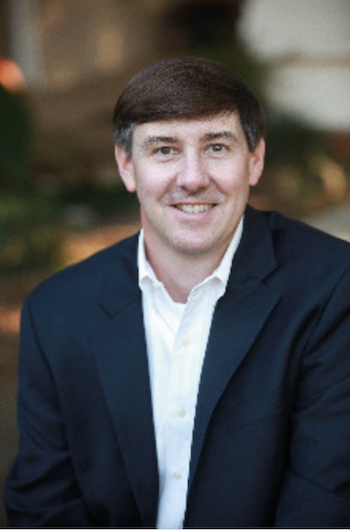About
Dr. Robert Morgan is a practicing anesthesiologist for over two decades, and has provided clinical care to thousands of patients while expanding his interests in both education and research. Almost 15 years ago, Dr. Morgan began partnering with numerous Clemson faculty members to support their research endeavors while teaching medical, nursing, and other allied health students as well as residents and practicing clinicians. During his tenure as Medical Director he served as an advisor and/or co-investigator with Clemson faculty including Drs. Mousavi, Joseph, Stanley, and Prabhu, exploring concepts ranging from the architecture and aeration capabilities of operating rooms to designing the use of virtual reality tools to reduce preoperative anxiety and postoperative pain. Dr. Morgan also deepened his relationship with Clemson University academically, returning to the classroom to complete his MBA degree in 2012. His clinical practice provides daily, tangible evidence of the great strides that needs to be made in South Carolina to improve the health of citizens. Fro leading the effort to pass Greenville's smoke-free ordinance in 2006 to participating in programs such as leadership Greenville and the Liberty Fellowship. He continues his commitment to improving public health in every manner possible - as a clinician, a teacher, and as a researcher. Dr. Morgan considers it an honor to continue the journey as a Clinical Faculty member at the Clemson University School of Health Research.
How their research is transforming health care
Dr. Robert Morgan's interest in treating pain and anxiety is a natural byproduct of the time he spends caring for patients as an anesthesiologist. Traditional methods for managing these issues, such as opioids or benzodiazepines, were a fundamental part of training and have been part of medical "doctrine" for decades. Nevertheless, he has remained curious about alternatives, such as music therapy, acupuncture, and other techniques. Unfortunately, the opioid epidemic has provided a stark reminder that those traditional methods are not without risks, with some patients becoming addicted to these medications post-operatively. Upon reading about soldiers who underwent physical therapy to treat burn-related skin contractures while participating in a virtual reality (VR) experience, Dr. Morgan had an "aha moment" and wondered whether those same techniques could be applied in the peri-operative environment. Novel approaches such as VR were just beginning to be investigated for the potential alleviation of anxiety and pain associated with surgery and the recovery process. Anxiety before surgery is a common phenomenon, with apprehension about the procedure and its potential outcomes looming large in patients' minds. VR provides a powerful distraction, immersing patients in calming environments that divert their attention. Furthermore, VR has demonstrated efficacy in managing post-surgical pain, with studies demonstrating a reduced perception of pain, allowing patients to better cope with the recovery process and potentially decreasing the need for pain medication. By harnessing the power of immersive technology, healthcare providers can offer patients a more comfortable and empowering experience, ultimately enhancing their quality of life.
Health research keywords
Virtual reality, pain, anxiety, multimodal analgesia

